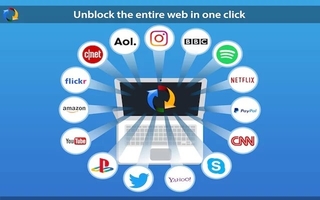
Social networking sites, like Facebook, MySpace and Twitter, are websites where you can create a profile all about yourself and send messages to other people. It's important to know how to stay safe online and what to do if someone is nasty to you.
While most people who use social networking sites are well intentioned, you need to be careful about the information that you share and how you protect it.
Participating in online social networking sites leaves a trail of personal information that can make stealing your identity a whole lot easier.
Social networking means opening up and sharing information online with others, but there’s some information you should never share online.
Never share the state where you were born as this information can be used to obtain your social security number and other identity information.
Customize privacy options
Check out the settings, configuration and privacy sections to see what options you have to limit who and what groups can see various aspects of your personal information.
You need to think about how much information you provide and to whom.
Some tips for safe social networking:
- Protect your account with passwords that cannot easily be guessed.
- Remember that the internet is a public resource - Only post information you are comfortable with anyone seeing. This includes information and photos in your profile and in blogs and other forums.
- Don’t reveal too much: Each website provides different levels of privacy settings to control access to your profile page and your interaction with others.
- Always type your social networking website address into your browser.
- Have a different password for each social networking site so that if one password is stolen, not all of your accounts will be at risk.
- Be careful about how much personal information you post online. Use privacy settings to control who has access to your information.
- Ask yourself if the information you are sharing is something you want your future employers, friends or family to see.
- Be careful about the amount of information that you reveal to people you don't know.
- Beware of spam messages: It could be an e-mail pretending to be from someone you know, addressing you by your first name and mentioning the names of your children. It does not look like a spam message and it can trick you into revealing even more sensitive information. Similar methods are also used to gain financial information from businesses.
- The best way to guard against such threats is to install software which updates your computer’s defenses automatically and makes sure you won’t be the one spreading worms among your network of friends. It’s also important to update your web browser, so remember to click on the security updates for Internet Explorer and Mozilla Firefox, or any other browser you are using. This helps to keep your computer patched up against the viruses.
- Never tell anyone any personal things about yourself or your family.
- Never give out your address or phone number.
- Instead of posting a photo of you, you could use a picture you like or a photo of your favourite band instead.
- Keep your passwords private and don't tell anyone, not even your best friend.
- Don't add anyone you don’t know to your friend list, even if they say they know you. If you don't know them, don't add them.
- People can create really great fake profiles, so be aware that even if someone says they are your age and into the same things as you, they might not be telling the truth.
- If someone contacts you or one of your friends with weird or nasty messages, don't reply to them and save the messages. Tell someone you trust such as a parent as soon as possible and show them what you have been sent.
- If you are writing a blog, be careful what you write in it. Don't give away too many details about yourself.
- Be skeptical - Don't believe everything you read online.
- Be wary of third-party applications - Third-party applications may provide entertainment or functionality, but use caution when deciding which applications to enable.
Teach your children about internet safety, being aware of their online habits, and guiding them to appropriate sites, parents can make sure that the children become safe and responsible users


